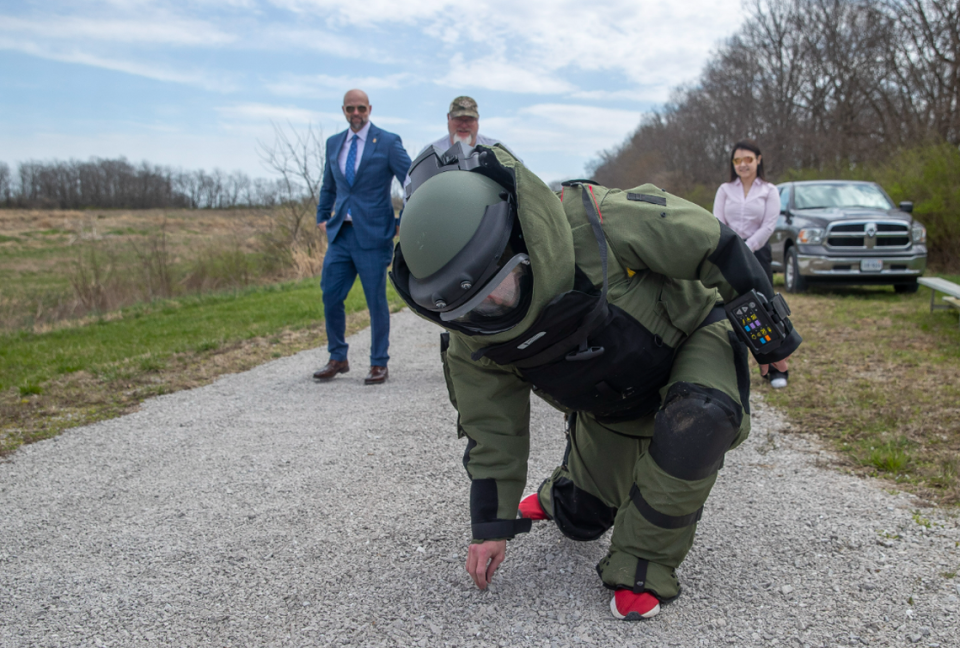Get to know reporter Aaron Mudd: How he sees journalism as a way to make sense of life
It’s been years, but I don’t think I’ll ever forget what I saw at the accident that day.
An SUV with a battered front-end sat in the road. A pair of child’s shoes lay scattered on the pavement nearby. A Catholic priest sat on the curb as he quietly consoled a father stricken with shock and grief.
Earlier, I had finished up work for the day at the Daily News in Bowling Green when my editor’s name lit up my phone. A girl had been fatally struck by a car while crossing the street that afternoon in late March 2016. As the paper’s education reporter, it was my job to get to the scene, learn what I could and file a story.
After interviewing the police and other people at the scene, I started to piece together a few basic facts. This 10-year-old girl, named Giselle Arias, attended an elementary school nearby. She was also a twin. The police were treating the crash as an accident. They expected no charges would be warranted.
At the scene, I found the school district’s superintendent, normally a friendly, chatty guy, now at loss for words. Giselle’s school principal described her as a sweet girl with a beautiful smile. I filled up my notebook with everything I could from the scene, went back to the newsroom and put together a story.
Days later, at that same spot, I was covering a community vigil for Giselle when emotions ran high erupted into a protest. Many in this low-income community where public housing was common felt frustrated, their previous complaints about the road’s safety swept aside. Those attending the vigil stepped into the road, blocked traffic and shouted out demands for a stoplight. The atmosphere was electric.
Community forums followed, public pressure rose and initially dismissive local leaders had to come along. Months later a traffic light and other safety improvements were added.
In its purest form, this is what journalists, including Herald-Leader journalists, do everyday. We make sense of life, even when it’s ugly or raw. The world needs that, especially these days.

Giant tech companies that control most of what you get to see online are moving away from news distribution, deciding it’s not worth the hassle. Years of bad press has pushed Meta to pivot from news, upending publications that relied on Facebook for referral traffic, CNBC reports. Even Google has become less reliable for news publishers after a decade of steadiness, the New York Times recently observed.
The deeper issue here is people are seeking out news less and less. Now, people expect the news to come to them, even as they wall themselves off with algorithms and social media feeds that only ever show them what they want to see.
Journalists have to work harder than ever to capture your attention. It’s especially difficult for local news, which covers the issues that are most immediate to you, to cut through the noise.
Since 2005, about 2,200 local print newspapers have closed their doors for good. Between 2008 and 2020, the number of American newspaper journalists fell by more than half, reports The Washington Post. Papers that have managed to stay afloat are often limited in what they can cover by their dwindling resources.
There’s a real, quantifiable cost for a community when it loses its paper. Research has linked newspaper closures to less civic engagement, more government waste and increased polarization, which ultimately makes us more isolated from each other.
Perhaps ironically, even the local elected officials we often find ourselves at odds with stand to lose, with research finding municipal borrowing costs increase when a community loses its newspaper. If you’re one to shake your head at local tax increases, that should concern you.
The rich and powerful, particularly politicians, are too happy to take advantage of this news vacuum. Motivated to advance their careers or political ambitions, they distort and deconstruct reality, replacing it with one that suits their whims.
This is the environment we face as journalists. These challenges are real, but not insurmountable.
It’s clear that we need each other — journalists and the public we serve. Herald-Leader journalists want you to be our partners, to stay engaged. Help us stay honest and grounded, but most importantly, help us continue to tell the stories that matter to you — your stories.

